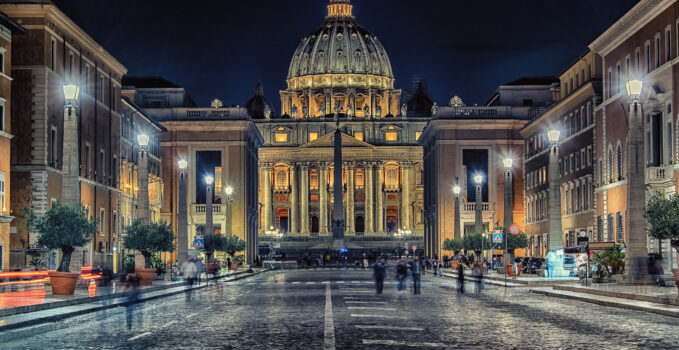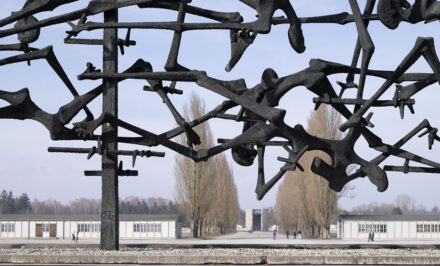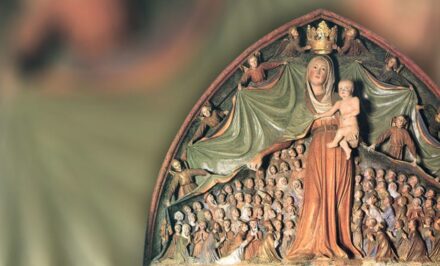By Matěj Pur, Czech Men`s League •
A few years ago, the Italian theologian, Alexandra von Teuffenbach, revealed to the whole world a view of Father Kentenich’s exile. All of Schoenstatt protested that she was too one-sided in her work, and everyone knew that it wasn’t that bad. Some months ago, the Chilean professor, and Doctor of philosophy of the Men’s Federation, Ignacio Serrano del Pozo, of the Universidad Andrés Bello, has given an answer, published (in Spanish) in Teología y Vida 64/2 (2023), p 195-221[1]. Father Kentenich comes out better, but far from innocent. —
Del Pozo’s article, approved by the Council of Experts, shows that the reports of the Jesuit inquisitor, Sebastian Tromp, show that he had no doubts about the purity of the founder, even in connection with the alleged sexual abuse of a sister. Furthermore, he did not doubt his good intentions and wrote about his excellent intellectual talents, his apostolic spirit, and his heart. However, he had a problem with certain actions that, in his opinion, led to a sectarian atmosphere in Schoenstatt at that time (and perhaps not anymore).
For example, in the much-discussed issue of the examination of the child (Kindesexamen) of the Schoenstatt Sisters of Mary, he states that although Father Kentenich is convinced that he is not doing anything wrong, the other side or his successor may not perceive it that way. According to Tromp, the fact that a priest meets with a celibate woman in private is already problematic in the spirit of the times. Father Kentenich should justify this by discovering a method of sublimation that is immune to sexual temptations. But Tromp calls it the naive stubbornness of the founder.
Even worse is Father Kentenich’s position as a banner of the paternity of God the Father, which Tromp completely rejects and asks Kentenich to adjust the various formulations so that it is clear which Father is meant at which moment. Kentenich refused, which led to eccentricities from today’s point of view, such as the painting by Irma Ulmer from Uruguay, in which God the Father had noticeable features of Father Kentenich. The Movement used phrases such as “Father, not my will, but your will be done” or the frequent “through him, with him, and in him” as a paraphrase of the end of the Eucharistic Prayer. And here, according to the testimony of the Sisters and the Pallotines, Kentenich was meant and not God.
According to Tromp, this cult of personality began to resemble the veneration of Hitler or Mussolini. Insisting that Schoenstatt is God’s favorite work or speaking of the treasure of the Schoenstatt faith didn’t help either. Tromp looks for an explanation in the arrogance of the Founder, who began to see himself as an infallible prophet and who did not return from Dachau as a calm hero, but as a fanatical demagogue who had to be corrected in time.
Kentenich was already accusing everyone who was not in agreement with him of being infected with the bacillus of mechanism and Bolshevism, which was not of much help to him. Del Pozo points out that more than the search for truth and the struggle for it, it is the fact that Father Kentenich, according to Tromp, had certain fixed ideas. He mentioned such accusations eight times in his first response to the episcopal visitation alone.
According to Del Pozo, Tromp should have asked more fundamental theological questions, so that Kentenich would recognize that the Church, which Tromp defended, is a communion with Christ as its head and is manifested in the Pope and the bishops under his authority. “You, Father Kentenich, are misbehaving before the bishops who, as representatives of Christ, are the second most important thing in the Church. That is why you think mechanistically and give people over to Bolshevism. Be careful not to be killed by the same weapons with which you attack others,” Tromp even uses Kentenich’s vocabulary full of causes and mechanistic thinking.
It is a theological problem and not a pastoral problem that the decree of the Holy Office asks Father Kentenich first of all to show respect for the authority of the Church and to stop using confusing terms that could be understood by someone as a separation of Schoenstatt from Jesus and his Church.
An independent commission of experts must clarify this. But, according to the Diocese of Trier, it will not be created by Schoenstatt, because conclusions from such a group are not sufficient to renew the process of beatification.
Complete Article written by Ignacio Serrano del Pozo (Spanish)
[1] SERRANO DEL POZO, IGNACIO. Las razones de un destierro: a propósito de las acusaciones de Alexandra von Teuffenbach contra el fundador de Schoenstatt. Teol. vida [online]. 2023, vol.64, n.2 [citado 2023-11-13], pp.195-221. Disponible en: http://www.scielo.cl/scielo.php?script=sci_arttext&pid=S0049-34492023000200195&lng=es&nrm=iso . ISSN 0049-3449. http://dx.doi.org/10.7764/tyv642.e3














